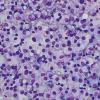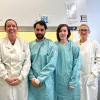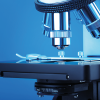Scientists have discovered a novel cancer-driving mutation in the vast non-coding regions of the human cancer genome, also known as the “dark matter” of human cancer DNA.

The mutation, as described in two related studies, represents a new potential therapeutic target for several types of cancer including brain, liver and blood.
This could be used to develop treatments for patients with these difficult-to-treat diseases.
Lincoln Stein, study co-lead, said: “Non-coding DNA, which makes up 98% of the genome, is notoriously difficult to study and is often overlooked since it does not code for proteins.
“By carefully analysing these regions, we discovered a change in one letter of the DNA code that can drive multiple types of cancer. In turn, we’ve found a new cancer mechanism that we can target to tackle the disease.”
The research group discovered that the mutation, termed “U1-snRNA”, could disrupt normal RNA splicing and thereby alter the transcription of cancer-driving genes.
These molecular mechanisms represent new ways to treat cancers carrying the mutation. One of the potential treatment approaches includes repurposing existing drug.
Image credit | iStock




